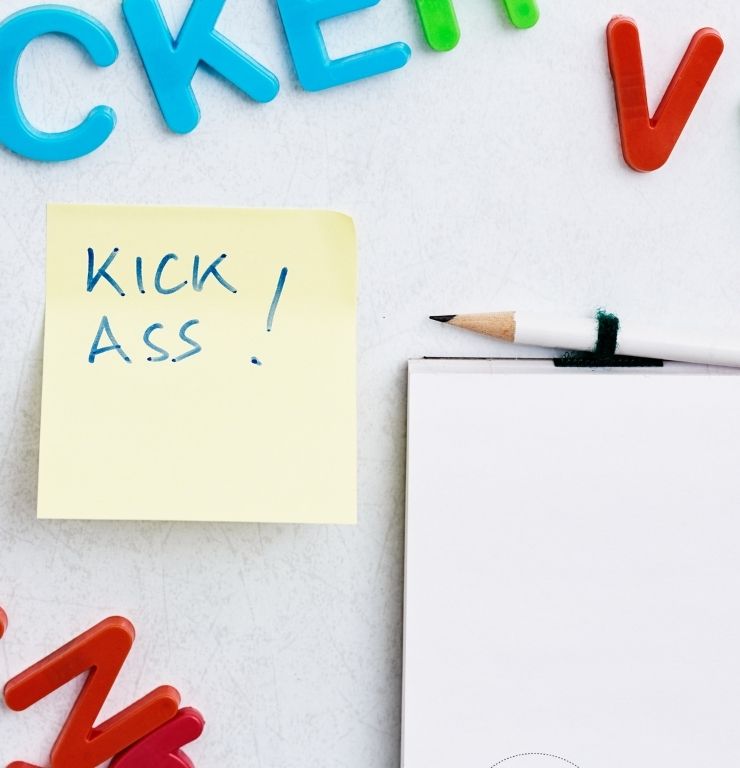
How what you wear speaks volumes
M
any years ago, I worked with a financial analyst in the energy sector. She was to deliver a presentation to four separate audiences in LA, and the topic was “Why I Never Bought Enron.” The people she would be addressing were shareholders and board members.
We had a slam-dunk report for them but she was uneasy. These were all Ivy-league types and she was the daughter of a detective, from Queens. She felt the difference, keenly.
So I suggested we style her as one of them: pearls, sweater set, black headband etc. I told her it would help her feel more at ease and it did the trick.
She was relaxed, thoroughly prepared and able to stay in the moment. She got spontaneous applause at 3 of the 4 meetings.
What you wear when you’re presenting matters quite a bit. Before you can open your mouth, your appearance is sending out messages. Make sure that you know what those messages are saying.

When “You have strong opinions” is Really Code for Something Else.
H
mmm. I’m wondering if other people have noticed the same thing. There are times when I’ve been told exactly those words (above) and in a tone meant to mildly shame or judge. As if having a less dynamic point of view would be preferable to the listener, as well as better suited to my gender, because the majority of people I’ve heard this from are men.
This begs the question: do men go around telling other men that they are very opinionated, and to tone it down? As my husband would say “homey don’t think so.”
So this week my calendar included coaching a senior executive with the ACLU, to prep for an upcoming presentation, and the stakes are huge. My strong opinions came in very handy, I can tell you that for sure. So I want to reassure all of us who might have been scolded for having a strong opinion- if it’s weak convictions you’re after, please seek them elsewhere…there are plenty of them out there. I’m proud to say I’m opinionated.

For the Ladies: Stop Apologizing, Please
The other day, I decided to count the number of times I heard women apologizing in public, because I was hearing a pattern in the way women, in general, communicate. (disclaimer: here in NYC, though I suspect it’s ubiquitous)
Clearly, I already suspected that the count would be high, but I was stunned as the number rose so quickly.

The short bus ride into the city racked up eight “I’m sorry’s” in under five minutes.
“I’m sorry, is this the last stop?” “Sorry to bother you, can I sit here?” and then just plain “sorry” for handing the driver a $20. (By the way, it’s their job to make change.) The best was when the bus lurched, and I accidentally stepped on the woman behind me, and she apologized to me.
My next stop was a meeting of an all-female entrepreneurs group. Oh, the apologies were whistling around the conference room…prefacing questions with “I’m sorry” or coming in late and apologizing, getting up to leave and apologizing.
This has got to stop. Women do it far more often than men, and I just can’t see the point of it. It’s a reflex, said without literally meaning in, but conveying apology and regret just the same. For what? What are we really saying here? It might be construed as apologizing for merely existing, and is that really the message we want to send out to the world?
I think not. Save the words for when you truly mean them, and not as a disclaimer for opening your mouth in public. Our words have consequences, with the power to shape the future, so stop apologizing and start thinking about what you really want to say. It will change who you are, and strengthen your self-confidence.

Dressing for Public Speaking Success.
If you’re planning on giving a presentation or some other form of public speaking, you have to understand that before you can say a single word, what you’re wearing has already spoken for you. Whatever words you speak after are all heard within the framework of that first impression you made.
Do you know what your appearance is saying, or have you not given it much thought?
Too often, people tend to completely overlook this fact, and as a result they fail to take advantage of this competitive edge.

Here’s what I mean: If I’m presenting to a group of senior women in finance, then it behooves me to style myself as one of them. I’ll select wardrobe pieces that are well-made, and flatter my figure as well as my coloring. My hair will be styled, not just pulled back in a scrunchy. My shoes will be in good repair and make me feel both supported and empowered. And even if I showed up in the most expensive jeans, sneakers and a sweat shirt, it wouldn’t matter and they would not be inclined to take me seriously.
- Always check your outfit the day/night before you present, so you’ll have time to fix problems.
- Avoid the head-to-toe black look; it makes you blend in with everyone else (in NYC) at a time when you want to stand out. Try deep ruby, orange, canary yellow, soft pink, bright red etc. touches instead…a scarf, blouse, tie, belt, suspenders.
- Try not to get wrinkled…stand on the subway instead of sitting, take your jacket off and carry it, carry your blouse in a bag and change when you get to your venue.
When you’re presenting, think of it as “Show time” and not just another day at the office. Ideally, you’re going to entertain your audience as well as educate them, and that’s where you get maximum engagement.

And if it’s at all possible, get your cat to test it out.

John’s Salt: Why Men Will Cheerfully Take Credit For Just About Everything.
Whenever I’m working with women on the subject of owning their skills and contributions in business, they tend to go a little soft and wispy. It doesn’t seem lady-like to speak openly and confidently about yourself.
And therein lies the rub: men do it all the time. Even if they’ve played a small part in a successful project, many are not shy about claiming ownership. It seems to be how we’re wired but I think a little tweaking is needed.

When I recently decided to learn how to make salt, I did some research on the internet. I picked a beach in Truro, on Cape Cod and asked my husband to help with the project. He carried the water jug.
After we collected it, I decided that little salt sachets would be a fine gift for my foodie friends and so I needed a name for my salt. I tried out “Corn Hill Salt,” “Cape Cod Salt,” “Bay Water Salt,” “Truro Salt.” And then my fetching husband came up with “John’s Salt.”
I looked at him and he was quite sincere…no ironic smile or anything, just sayin’ … “John’s Salt.” He just carried the jug. I found this hilarious.
So ladies, I want you to think about this. Everything is relative. If you have a hand in a project, own it. Especially if it goes well and you helped with that. Otherwise, we aren’t worth our salt!

Can We Stop With the #@! kick-a–Nonsense?
There’s a trend in coaching and other types of entrepreneurial endeavors to title workshops, seminars, classes etc. using mild profanity. I suspect this is meant to convey a saucy dis-regard for convention. Instead of calling my workshop “Signature Talks to Grow Your Business” why not flash my sass and call it “Kick-Ass Keynotes to Bring Them to Their @#$ Knees?”

I’ll tell you why not-first, it sounds juvenile- as if I’m 13 years old and trying out the naughty words to see what kind of effect it has on the grown ups. It’s playing at mild shock value. As my close friends can attest, I love to swear on occasion, using curses far more blue than “kick-ass.” It’s fun to mix it up. But it’s organic and appropriate to the moment, not contrived to be clever in business.
Second, anytime I spot a trend in communicating that everyone is employing, that’s reason enough for me not to do it. Our speech should express our genuine thinking, not copy the vanilla choices that everyone is making.
Which is why the naughty girl talk looks all the sillier-it’s not even original. That’s the real problem right there. If you’re a coach, or business owner, you’d better be able to think and speak for yourself. Until you can, give careful thought to the bandwagon you’re climbing on. It might not be headed where you want to go.
